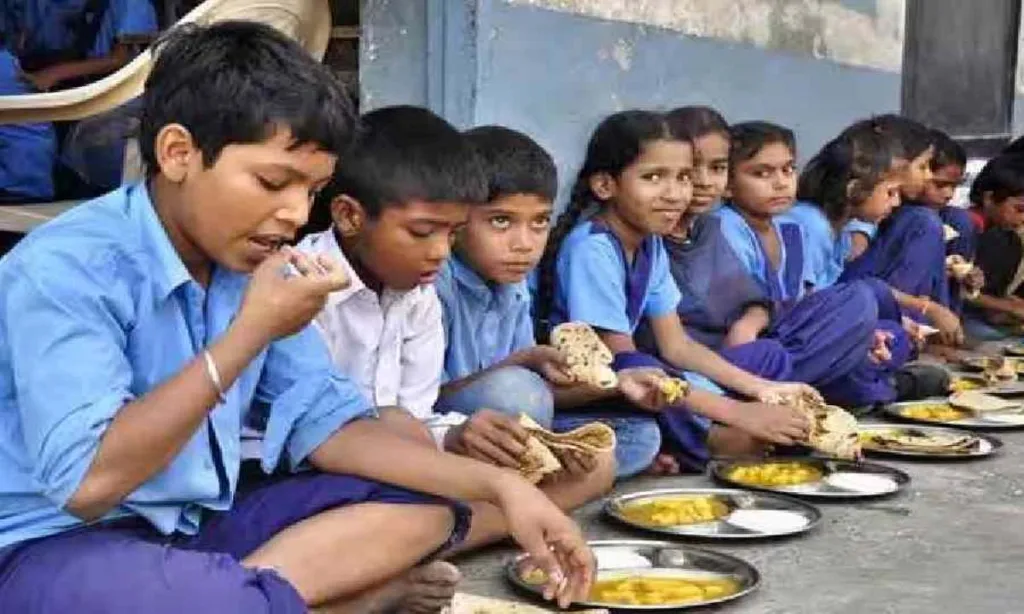Jharkhand Assembly asks students to serve ‘tasteless mid-day meal’

The issue of “tasteless mid-day meal” was raised by students for two consecutive days during the winter session of Jharkhand Assembly.
While CPI-ML MLA from Bagodar Vinod Singh raised the issue and cited The Telegraph report in the Assembly on Tuesday, JMM’s Kharsawan MLA Dashrath Gagrai raised the issue on Wednesday and highlighted the problem of children. One has to face problems due to midday meal. .Supplies are being supplied from centralized kitchen.
Both the MLAs pressed the state government to provide a centralized kitchen scheme for the distribution of mid-day meals and to restart the old kitchen system in school facilities.
In its report on Tuesday, The Telegraph cited a survey report conducted by Food Security Jan Adhikar Manch, an NGO that campaigns for food security.
The report confirmed that students from four districts of West Singhbhum district of Jharkhand were eating food cooked in the middle of the day at the centralized kitchen of Fundación Annamrita. The survey found cases when children scraped away food or left large portions on their plates untouched because it was “bland”, made without onions and the menu did not include eggs. .
On Wednesday, a delegation of ONG met West Singhbhum Deputy Commissioner Ananya Mittal in Chaibasa (district seat of West Singhbhum) and asked him to plan a centralized kitchen for mid-day meals and implement the old system.
The delegation shared the survey on mid-day meals provided by centralized kitchens in 42 schools in 23 panchayats of four blocks (Sadar, Khuntapani, Tantnagar and Jhinkapani) of the district between September to November 2023.
The delegation said that in the survey, students from 42 schools and teachers from 92 per cent of those schools said that the mediocre food prepared by the cook in their own school was now better in quality and taste than the food prepared by the centralized kitchen. Was.
Teachers of 90 percent schools also said that earlier when food was prepared in their school, children used to eat more. It is now common to reject food due to its poor quality and poor taste”, the survey states.
During the survey, children, teachers and cooks in most schools said that earlier, when food was prepared in school facilities, it was hot, fresh and fresh. Every day he included vegetables and fruits in his diet.
“But the taste of food from the central kitchen is completely different from food at home. Food gets cold quickly in winter and starts spoiling in summer. Green vegetables are never available. Of the vegetables, the only ones found in the food are potatoes and pumpkins, three of which are large enough that sometimes they don’t even need to be cooked completely. The feet remain sharp and sometimes are not even completely dry. “Rice and vegetables are also being destroyed frequently,” said Chaibasa activist Ramesh Jerai, citing information from the survey.
The delegation also cited NFHS (National Family Health Survey)-5 data, which shows that 62 per cent of children under five years of age in the district are malnourished.
Zerai said Sebola is imposing a particular religious ideology on children, especially tribal children, which is contrary to constitutional values.





